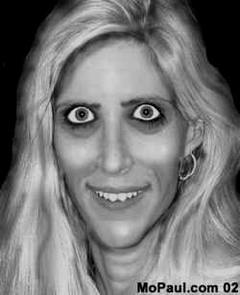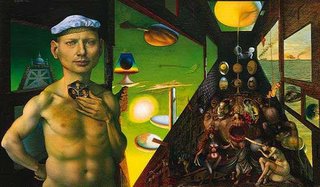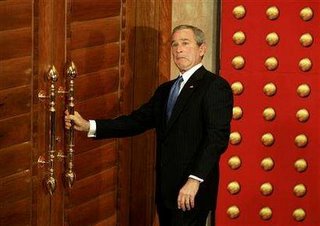Film stirs talk of abuse of religionBy David Crumm
Detroit Free Press:
http://tinyurl.com/bzbbzSixty years after the Holocaust, a new movie about Protestant support for Adolf Hitler is raising fresh questions about the dangerous misuse of religion today.
About 250 students, faculty and guests at Rochester College, a Church of Christ-related school in Rochester Hills, attended a preview last week of filmmaker Steven D. Martin's documentary for PBS, "Theologians Under Hitler: Could It Happen Again?"
After watching the film, Calvin Moore of Rochester, a 26-year-old history student, was among many in the crowd who peppered Martin with troubling, contemporary questions.
"This makes me wonder a lot about all those cases today when we claim we're taking righteous stances as Christians and we all too quickly attach God's name to our efforts," Moore said last Thursday.
Moore said that as he watched the film, he found himself pondering everything from American guilt in destroying American Indian culture to claims made by some national religious leaders who support the war in Iraq today.
"I really don't know the answers, but when you see something like this film, it makes you ask all sorts of questions like this," he said.
Doris Karson, 79, of Kalamazoo had driven all the way across Michigan to see the film because she lived in Germany until 1948 and painfully recalls the rise of Nazism.
Raised in a Catholic family, Karson said she is familiar with the long-running debate over whether Pope Pius XII did all he could to oppose the Holocaust. She said this scathing new indictment of Protestant theologians seems like an important, new viewpoint on the era.
"I think everyone should see this and think about what happened then," Karson said. "People are talking about Pope Pius XII, but I think people should know all of this whole story."
The story behind Martin's film was published 20 years ago in a Yale University Press book by historian Robert Ericksen, "Theologians Under Hitler," but that text was aimed mainly at scholars.
It took Martin, a United Methodist pastor from Tennessee who makes documentaries in his spare time, more than two years and thousands of miles of travel to complete this hard-hitting, one-hour overview of the book.
The film focuses on several 1930s-era Protestant theologians in Germany who encouraged the rise of Nazism, publicly praising it as a gift from God to resurrect the impoverished German people. These men also added their moral weight to the attempted destruction of Judaism.
Among the most infamous was Gerhard Kittel, at the time a world-famous Protestant expert on the ancient history of the Bible. Far from a marginal figure or thug, like many of Hitler's early followers, Kittel taught at the centuries-old Tubingen University, the same school that later would have Joseph Ratzinger, now Pope Benedict XVI, on its faculty.
In the 1930s, Kittel became convinced that ancient strains of Christian contempt for Jews should be turned into a brutal campaign against them.
"We must not allow ourselves to be crippled because the whole world screams at us of barbarism," he wrote. How Germany "regulates its own cultural affairs does not concern anyone else in the world."
In the often-emotional discussion after the film, Rubel Shelly, a Rochester College professor who teaches courses on religion, told the crowd, "This startles me, aggravates me and humbles me. It scares the life out of me."
He said the film made him wonder about everything from the abuse of Christianity by white-supremacist groups like the Ku Klux Klan to the twisting of Islam by suicide bombers.
"For me, the insight from this film is that religion can become downright evil," he said.
Shelly said he's disgusted to see "that even the filling of vacancies in the Supreme Court right now has become a religious dogfight."
Without a stricter separation of church and state, Shelly argued, "we can still allow ourselves as Christians to be played by political power," just as in Germany in the 1930s.
At that point, he turned to Martin and asked, "So where are the religious leaders who are strong enough to resist the stroking of political power today?"
Then, Martin pointed back at the crowd of mostly college students. "It's my hope that they're you," he said, "because, if not, I'm wasting my time with this film."
*



























